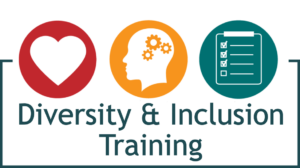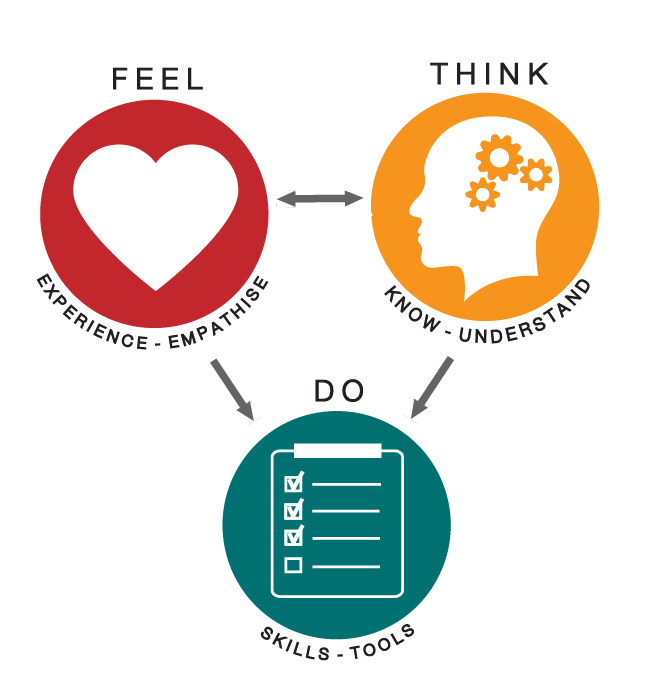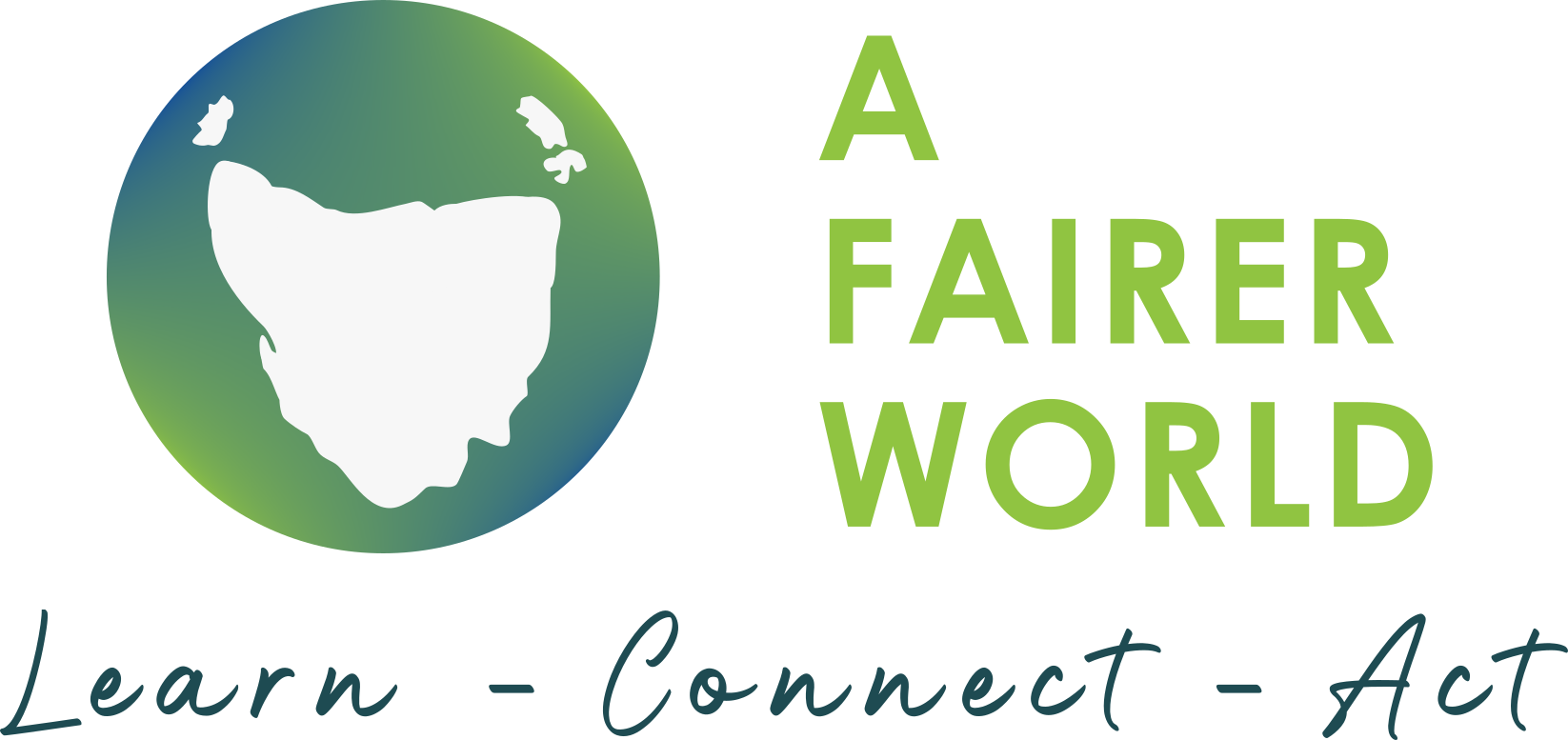Diversity & Inclusion Training
NEWS: Workshop 1 of our Diversity and Inclusion Training program for workplaces, the Hobart Human Library, is now available as an online/virtual course, giving workplaces the option of flexible delivery at times and locations of their choice.
The first participants – staff from Service Tasmania – gave it an average rating for quality of 94%!
“A Fairer World recently delivered an online Human Library course over a number of weeks to a group of Service Tasmania frontline customer service staff from across the state. Participants found the program very interesting and informative and provided a new perspective and awareness of diversity and how to ensure language and behaviour is inclusive. The online delivery worked extremely well and enabled our staff to participate and interact with their Books simultaneously from their various service centres including Devonport, Launceston, Glenorchy and Hobart.” Noelene Kelly, Director, Service Tasmania
A preview of the course is available at www.afairerworld.org/courses. To find out more or get a quote contact us or phone (03) 6223 1025.
Creating more inclusive workplaces
A Fairer World offers a range of diversity and inclusion workshops that can be delivered in-house or online. The program is unique in that all workshops are co-designed and co-delivered by professional inclusion trainers and community experts (people with personal experience of discrimination who have trained as educators).
Workshops are interactive, encourage open discussion and can be tailored to individual organisational needs.
The program supports the Tasmanian Government Diversity and Inclusion Policy and Framework.
“It is my view that this is a very effective model, appropriate for adoption across the Tasmanian State Service to develop managers’ and leaders’ understanding of unconscious bias, and diversity and inclusion more broadly.” Jenny Gale, Secretary, Department of Premier and Cabinet


Wadeed shares the story of his journey from Aleppo to Hobart and his struggles to reclaim a 17 year career as a dentist. Wadeed is one of the human ‘books’ who visit workplaces as part of our Diversity and Inclusion Training.
Our approach
The three workshops are ordered according to a Feel, Think, Do model of diversity and inclusion. This is based on evidence that hearing about the effects of bias from people with personal experience is essential in order to achieve the motivation needed for real organisational change.
We have a pool of people with personal experience of different forms of prejudice who have trained as educators – these are our community experts.
Feel (affective) – real life examples of prejudice and discrimination told by the people who have experienced it.
Think (cognitive) – research proving the existence and effects of unconscious bias.
Do (active/behavioural) – practical tools and strategies that can be put into effect immediately.
Download our Diversity & Inclusion Workplace Training Program 2023


The Hobart Human Library is the perfect starting point for diversity and inclusion training for leaders, managers and employees.
The library uses the art of storytelling to break down barriers and build empathy. It provides a comfortable space for participants (‘readers’) to speak informally with a human ‘book’.
The ‘books’ are Tasmanians who have experienced stereotyping, prejudice or discrimination for a variety of reasons such as, sexual orientation, gender, culture, religion, mental health or appearance.
Outcomes:
- A first-hand understanding of the damage caused by stereotyped thinking.
- Practical ideas on how to recognise and challenge stereotypes.
- Hearts and minds that are open to learning more about diversity and inclusion.
Delivered over two hours in your organisation.
Feedback: The average rating by Tasmanian Symphony Orchestra staff was 91%. These are some of their comments:
- I feel more open to talking to people
- Think before I act
- Pay a lot more attention to disability access and inclusion.
- Approaching everyone with the knowledge they have a story.
- About labelling, that everyone is an individual, that we should value and respect.
- Listen more, talk less.
- More empathy, more listening, awareness around judgmental behaviour.
This workshop introduces the concepts of diversity and inclusion in the workplace – their benefits and the barriers to achievement. Evidence reveals that unconscious bias is part of the way the human brain functions, but we can override our biases. Links are explored between behaviour, language, culture and inclusion, leading to an informed discussion of strategies to disrupt and mitigate the effects of bias.
The workshop is based around videos, activities and discussions with community experts.
Outcomes:
- An understanding of the brain processes behind unconscious biases.
- Practical personal skills to minimise the effects of bias.
- More inclusive language and behaviour practices.
Delivered over three hours in your organisation.
Feedback: Comments on the workshop by members of the Tasmanian Government Diversity & Inclusion Reference Group:
- The content is brilliant – it’s clever and provocative but really well put together.
- All videos chosen in presentation were short, to the point & interesting.
- Thank you, very insightful.
- Fantastic session – I look forward to more!
- A great resolve to dig deeper into my bias.
- Implement actions to address behaviours in the workforce to be more inclusive.
This workshop builds on the previous workshops to develop inclusion strategies that can be put into effect immediately in your organisation.
Case studies and discussion of real work situations allow participants to develop effective strategies for change in their own organisation.
Together, participants will develop and commit to measurable inclusion outcomes for their team/department that contribute to the goals of the organisation.
Outcomes:
- How to identify and address barriers to inclusion and how to ‘reverse’ bias.
- A range of effective tools and strategies to prevent ‘biased’ decision-making.
- A commitment to defined inclusion outcomes.
Format: Delivered over three hours in your organisation.
Feedback: Comments on the workshop by Department of Premier and Cabinet staff:
- Great workshop that opened my eyes to diversity and inclusion.
- Thought the group work and moving tables to get different perspectives was great.
- Nice feel amongst the group – felt able and comfortable to contribute.
The Inclusion Forum is ideal as a taster or refresher, or for larger audiences, such as at conferences.
Like the Hobart Human Library, an Inclusion Forum uses the art of storytelling to break down barriers and build empathy. It provides an opportunity for audiences to hear the personal experience of prejudice from two human ‘books’ and ask questions in a Q & A that we call, “You can ask that!”
An Inclusion Forum can be from 45 to 60 minutes and is delivered either in person or virtually using Zoom. For workplaces, there is also a flexible online version Inclusion in Practice which is delivered as six half-hour sessions.
An Inclusion Forum can cover one or two themes, for example gender, sexuality, disability, culture or mental health.
For workplaces in Hobart, the Inclusion Forum is a perfect ‘lunchbox’ session. Staff can explore selected diversity themes and ways of being more inclusive in a relaxed setting.
Download the Inclusion Forum brochure or contact us for costs and bookings.
Feedback: The average rating by RACT staff for a lunchtime Inclusion Forum was 97%. These are some of their comments:
- It was just so good to be able to be in a room feeling safe and having no judgement.
- Hearing stories. Chloe and Andy are awesome!
- It was great to have a Q and A session after Chloe and Andy and for them to be so open answering our questions.
- Loved it all.
A multi-award winning anti-racism workshop that aims to create a more inclusive workplace.
An inspiring workshop delivered by Students Against Racism, a group of young people from refugee and migrant backgrounds. Students share their personal stories of why they left their homeland, their journey to Australia and their life now.
Outcomes:
- An understanding of the forms and impacts of racism and how it can be addressed.
- Increased cultural competence (effective interaction with people from different backgrounds).
- Enhanced multicultural empathy.
Format: This workshop is delivered over one to two hours in your organisation.
Feedback: The average rating by organisational change leaders at Parliament House was 99%. These are some of their comments:
- One of the best and most professional workshops I’ve ever attended. Hearing individual’s stories was a powerful and effective way of communicating your overall message.
- This should be in every school & workplace.
